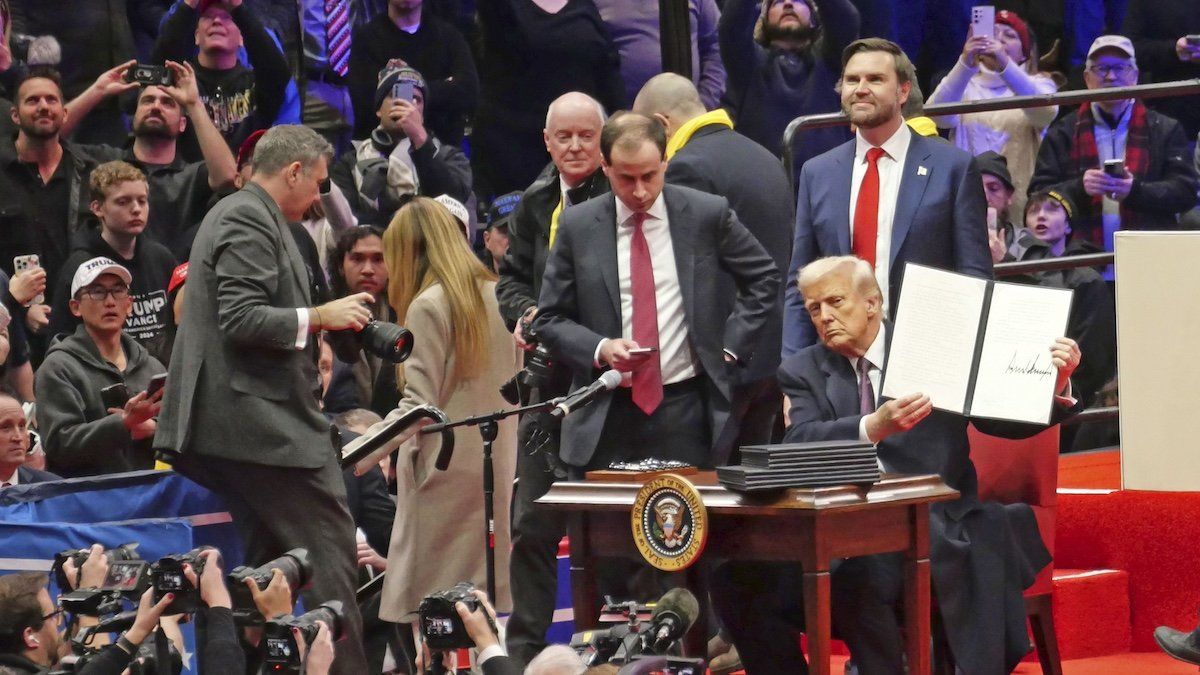In the hours after taking his oath of office on Monday, Donald Trump signed nearly 100 executive orders, laying the groundwork for his second term. So, what’s changed?
Acting appointments. First up were orders filling more than 30 acting positions in the federal government, alongside nominations for Senate-confirmed roles. Trump tackled these before the traditional inaugural luncheon, which effectively allowed his people to start running government bureaucracies.
Then it was off to the big show. And no, we don’t mean the inauguration. We’re talking about the live signing of executive orders in Washington’s Capitol One Arena — in true reality TV-star style. Here’s a brief rundown of the main impacts of these orders:
Immigration
- The border is closed to asylum-seeking immigrants, and the federal government declared a national emergency at the US-Mexico border.
- Birthright citizenship for undocumented immigrants is ordered to end, though the effect isn’t clear. The 14th Amendment to the Constitution enshrines the right, and the order will likely face legal challenges.
- Certain drug cartels are designated “global terrorists.”
Trade
- Federal agencies are ordered to investigate unfair trade practices and deficits and assess compliance with trade deals.
- Trump’s idea of an “External Revenue Service” is to be assessed for feasibility.
Environment
- The US is officially out of the Paris Climate Accords.
- Trump ordered a national energy emergency to speed permitting for pipelines and power plants, and to roll back environmental regulations.
- He also ended pollution and fuel economy standards that Trump called an “electric vehicle mandate.”
- Alaska’s wilderness is more open to oil and gas drilling.
Gender
- Protections for transgender people in federal prisons and migrants in US custody are removed, meaning trans people will be housed with the gender assigned at birth and will lose access to specialized medical care.
- Biological sex is defined as the policy of the federal government and as part of Title IX guidance.
Miscellaneous
- He pardoned more than 1,000 people charged in the Jan. 6, 2021, attack on the US Capitol, commuting the sentences of leaders of the Proud Boys and Oath Keepers.
- Federal employees are ordered to work in the office 4-5 days a week — bummer.
- TikTok is back though!
